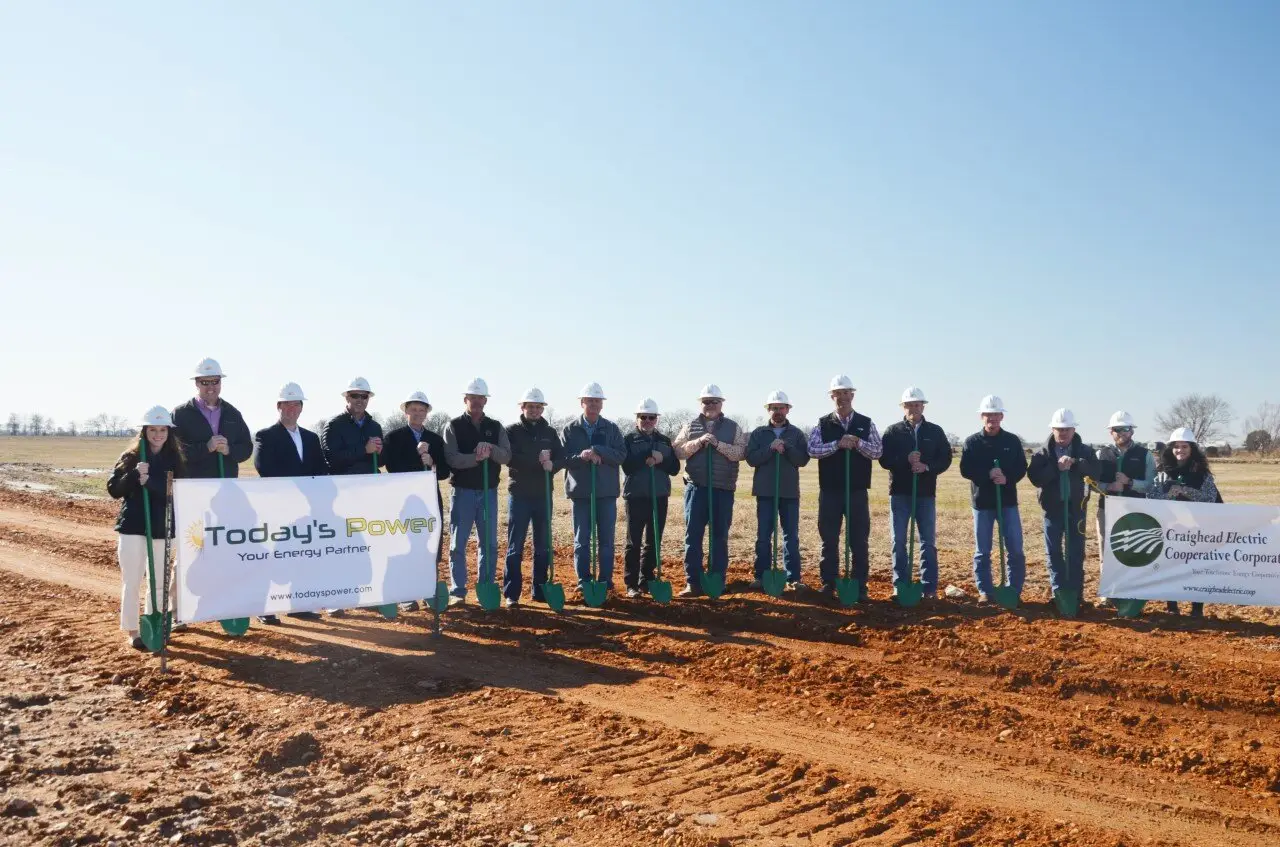Rooftop solar panels are a hot topic for homeowners, but generating energy with the power of the sun is a particularly appealing prospect for farmers. The agricultural industry uses an enormous amount of energy for running wells, grain bins, gins, and mills. But solar panels take a considerable amount of space to operate and take years to produce enough energy to pay for themselves. This is no problem for a farmer who can make farmland available to construct solar fields and, through smart investing, plan for the financial investment such systems require. Available federal tax incentives sweeten the deal, making the notion of self-generation appealing.
This is the question Southland Gin and Delta Farms, both of Craighead County, recently faced: Can you control energy costs well into the future, and do it responsibly, with solar power? They approached Today’s Power Inc., an Arkansas Electric Cooperative subsidiary, to conduct a feasibility study and answer this question. Together with Craighead Electric Cooperative, TPI proposed a plan for a solar generation facility with battery storage that is unlike any system currently operating in Arkansas, one that will provide benefits to all parties involved.
Delta Farms and Southland Gin gain the benefit of the kilowatt-hours produced by the solar panels, lowering their energy costs and shrinking their carbon footprint. Today’s Power will be contracted to operate and maintain the systems throughout their useful life and Craighead Electric Cooperative, through the punctual dispatching of the battery, can lower its cost of electricity to its members.
The entire project, made up of three separate systems, will operate on 15 acres of land East of Jonesboro, Arkansas on Highway 18 and total 2-Megawatts of electric generation. Delta Farms will purchase and own a 1.2-Megawatt fixed solar system. TPI will own a .8 Megawatt single-axis tracking solar system and battery energy storage system. The output of this tracking system will be leased to Southland Gin from TPI, an arrangement made possible by Act 464, passed this year by the Arkansas General Assembly. When electricity generated by the arrays exceeds demand, the electricity will be net-metered to the Craighead Electric system or saved in on-site battery storage systems. Craighead Electric can then discharge the electricity stored in the battery during peak use periods to lower its system-wide power demand.
“It’s exciting to see a project like this that benefits all members of Craighead Electric. The idea of storing power to use whenever you need it is an industry-changing technology,” says Brian Duncan, CEO of Craighead Electric. “At Craighead Electric Cooperative, we work together to enhance our members’ value, whether it be through renewable power resources or high-speed broadband internet. This initiative is an example of how utilities and major energy users, through creativity and partnership, are meeting the needs of the future.”
Civil construction started in late November. System construction will begin in December, with commissioning to begin in February. The project is expected to be completed in March of 2020 with operations beginning shortly thereafter.




